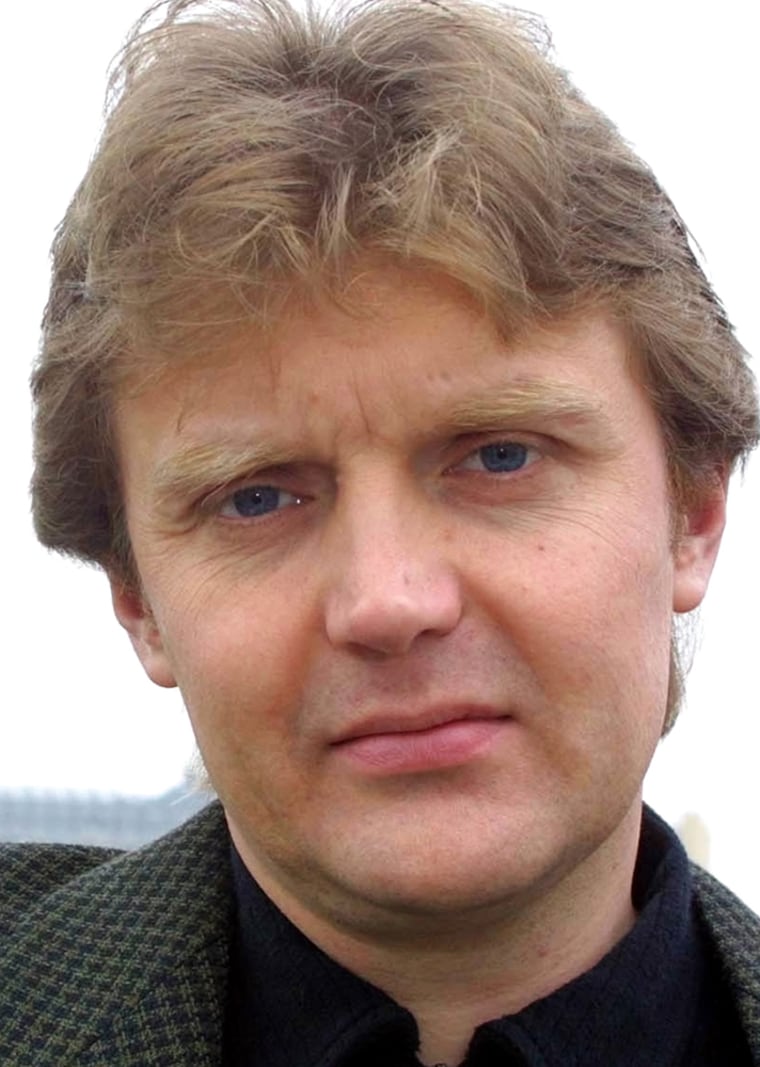In a case with echoes of a classic Cold War spy tale, a former KGB agent is clinging to life in a British hospital amid allegations that he was poisoned by the very government he once served.
Col. Alexander Litvinenko, a former spy, an author and an outspoken critic of Russian President Vladimir Putin, said he fell ill after meeting with a contact over a sushi meal while probing the murder of Russian journalist Anna Politkovskaya.
The allegations, which have sparked an investigation by British authorities, were dismissed by a Kremlin spokesman as “sheer nonsense.”
“We cannot comment of the very fact of what happened to Litvinenko, and we don’t consider it possible to comment on the statements accusing the Kremlin because it is nothing but sheer nonsense,” Dmitry Peskov told the Associated Press.
An anonymous police spokeswoman told The New York Times that specialists were “investigating a suspicious poisoning,” and she described Litvinenko’s condition as “serious but stable.”
Meanwhile, doctors — who said the exiled former Russian spy has a 50/50 chance of surviving — moved him to an intensive care unit as a precaution after his condition deteriorated slightly on Sunday night.
‘Difficult to imagine’
British news outlets identified Litvinenko’s contact on the day he fell ill as Mario Scaramella, an Italian academic who helped investigate KGB activity in Italy during the Cold War. Scaramella could not immediately be reached for comment.
Alexander Goldfarb, a close friend of Litvinenko who helped him defect to Britain, said he suspected the former spy had been targeted by the Russian government.
“It’s very difficult to imagine that presidents order killings, it is true. And nobody is saying that Putin personally ordered this, although it is very likely,” he told the British Broadcasting Corp.
“Of course we do not have any direct evidence other than he (Litvinenko) met some people during that day,” Goldfarb said. “He actually had a couple of meetings where he had drinks and this poison could be sprinkled there.”
Asked what evidence he had, Goldfarb said: “What else do you need? ... The suspected killers have a record of similar murders. The only difference is it’s here and not there.”
Fleeing Russia
Litvinenko left Russia for Britain six years ago and has become an outspoken critic of the Kremlin.
In a 2003 book, “The FSB Blows Up Russia,” he accused his country’s secret service agency of staging apartment-house bombings in 1999 that killed more than 300 people in Russia and sparked the second war in Chechnya.
Litvinenko joined the KGB in 1988 and rose to the rank of colonel in its successor, the Federal Security Service, known as the FSB. He began specializing in terrorism and organized crime in 1991, and was transferred to the FSB’s most secretive department on criminal organizations in 1997.
He fled Russia and claimed asylum in Britain in November 2000, two years after publicly accusing his FSB superiors of ordering him to kill tycoon Boris Berezovsky, at the time a powerful Kremlin insider and now living in exile in Britain. Berezovsky said Sunday that Litvinenko fell out with his superiors after he exposed corruption within FSB ranks.
Before he left Russia, Litvinenko was jailed for nine months awaiting trial on charges of abusing his office; he was acquitted.
One gram can kill
A spokesman for the Russian embassy in London described Litvinenko’s illness as an “accident” and said it had no involvement.
“We are not worried about it. We have no concern about it. You need to talk to the Metropolitan police and then wait for the end of the investigation,” he said. “Mr. Goldfarb is his (Litvinenko’s) friend and he can say anything he wants.”
The alleged poisoning took place on Nov. 1. Litvinenko was hospitalized soon afterward but a toxicology report has only recently identified the cause of his illness.
John Henry, a clinical toxicologist, told BBC radio Litvinenko was “quite seriously sick” and there was “no doubt” he had been poisoned by thallium.
He described thallium as a “little bit like table salt” and said even a small amount could kill: “It is tasteless, colorless, odorless. It takes about a gram ... to kill you.”
Goldfarb said he had visited Litvinenko in London’s University College Hospital and said he looked “like a ghost.”
“He has lost all his hair, he is very thin, he actually hasn’t eaten for 19 days now,” he said.
Litvinenko’s case echoed the poisoning of Ukraine’s President Viktor Yushchenko, who fell ill after dining with security service leaders while he was a presidential candidate in 2004. Doctors found he had been poisoned with dioxin.
Bulgarian dissident Georgi Markov was murdered in London with a poison-tipped umbrella in 1978 during the Cold War.
